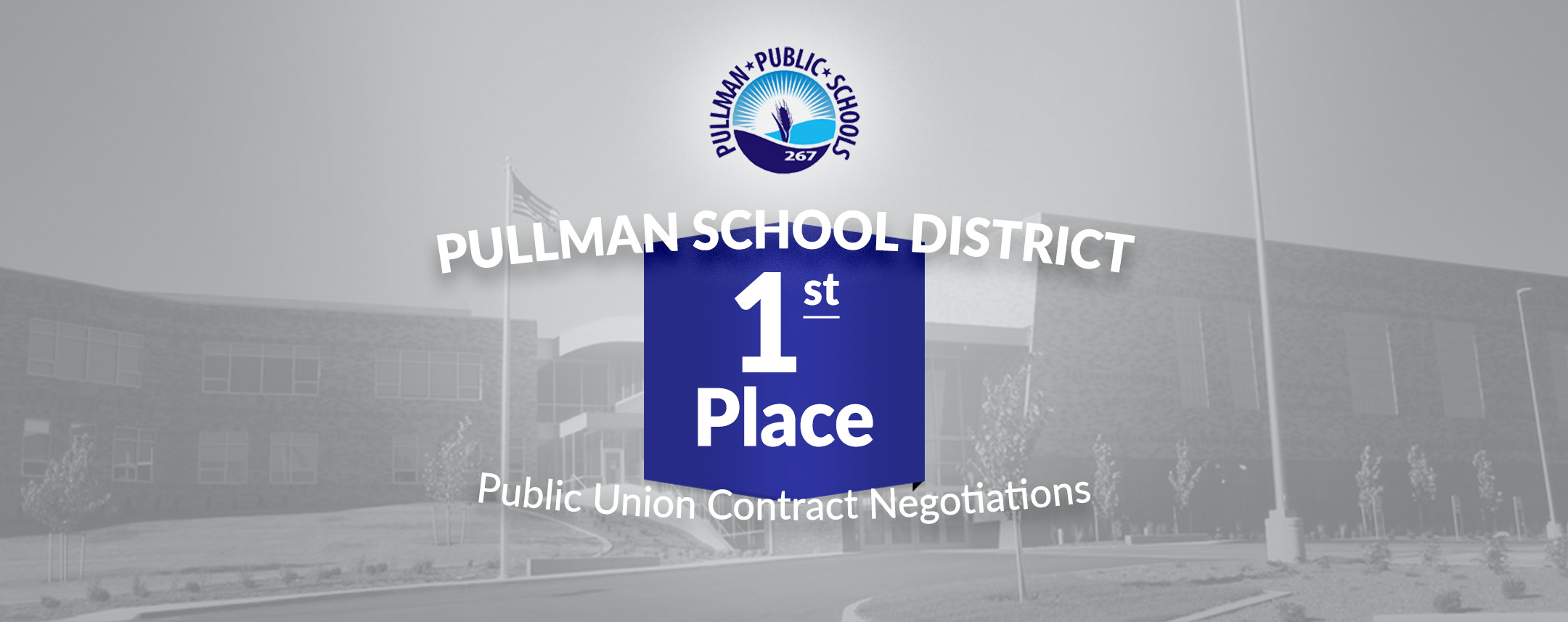Earlier this spring, the Pullman School District adopted a resolution based on a Freedom Foundation model that established a new district policy of negotiating union contracts in public rather than in secret meetings.
The policy was announced on the district’s website with the schedule of upcoming bargaining sessions:
“All bargaining sessions will take place in the community/board room at Pullman High School, located at 510 NW Greyhound Way in Pullman, and are open to the public.”
On April 19, the contract with some employees is being negotiated without resorting to a secret meeting.
This practice is a new precedent for Washington government unions, but nearby Oregon and Idaho both allow public observation of the negotiations between their elected government representatives and the union private special interest group.
Area journalists have applauded bargaining transparency, and the local radio station, Pullman Radio, noted Pullman Public Schools is “…the first in Washington required to negotiate in the public eye.”
Community members commonly approve such efforts. Voters in Colorado supported a government union bargaining transparency initiative in 2014 with a 70 percent majority. Lincoln County, Washington also negotiates publically with its public employee unions, and a survey there showed 73 percent supported the practice.
The benefits of bargaining transparency are numerous, and it really is a win-win-win reform.
- Union workers win by seeing how their concerns are actually being reflected at the bargaining table by the union enterprise they pay for representation.
- Citizens win by knowing the source of labor conflict which might jeopardize public services and by knowing the struggles of budgeting for public services.
- Elected officials win by demonstrating they are neither unreasonable as an employer nor have they allowed union electioneering to create a conflict of interest.
Schools in particular address a host of important issues in collective bargaining which impact the services to families. A few of the ways in which the union interest conflicts with those of the public and taxpayers:
- The use of discretionary money. The negotiation for levy-funded pay raises cannibalizes resources which were formerly used for services, enhancements, building maintenance or other local priorities
- The schedule for student learning. The reason so many school districts are using the inefficient, unpopular and potentially academically harmful “half days” or shortened school year is because the employees find it more convenient to arrange the schedule this way for their supplemental responsibilities.
- Excellence and incentives. How employees are evaluated, motivated to grow or disciplined are decisions about the job security of employees made in collective bargaining.
- Time with students. District policies about personal leave and other non-classroom options increase or decrease the number of days students spend with a substitute teacher.
- Class size and remedies for large classes. Many contracts provide financial incentives for large classes by using the contract to require bonuses for large classes.
More information about the importance of teacher union contracts can be found in the Freedom Foundation study, “Grading the Teacher Union Contracts.”
In Pullman, the sky hasn’t fallen. Those most interested in what’s going on at the bargaining table are the employees who are required to pay dues. Perhaps the teachers union objection to the new policy has less to do with the public and more to do with fear of what their members might discover.








